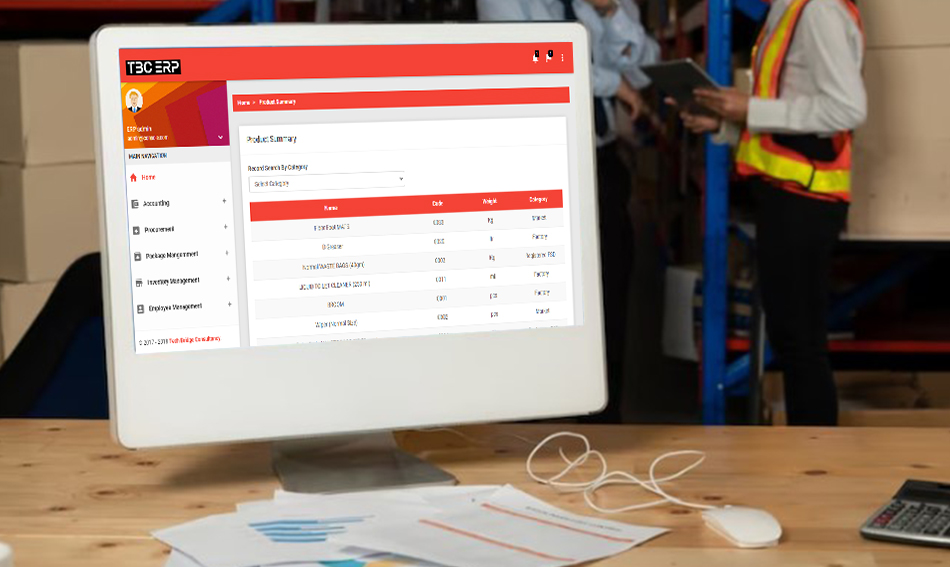
The Crucial Role of ERP Software for Inventory Management
In the fast-paced realm of business, where precision and speed are paramount, effective inventory management stands as a linchpin for success. As enterprises expand, managing inventory becomes increasingly complex, necessitating advanced tools to streamline processes. Enter Enterprise Resource Planning (ERP) software, a robust solution that revolutionises inventory management by enhancing accuracy, efficiency, and overall operational control.
Advantages and features of ERP software for inventory management
1- Integration
ERP software serves as a comprehensive suite, integrating various business functions into a centralised system. When it comes to inventory management, this proves instrumental in maintaining a real-time overview of stock levels, order fulfilment, and supply chain dynamics. The days of manual tracking and disparate spreadsheets are replaced by a seamlessly connected digital infrastructure.
2- Eradication of Silos
One of the primary advantages of ERP software in inventory management is the eradication of siloed information. Traditional methods often result in isolated data pockets across different departments, leading to inefficiencies and errors. ERP brings cohesion by unifying data sources, enabling departments to work in tandem and fostering a more synchronised workflow.
3- Automate Mundane Tasks
ERP systems are designed to automate mundane tasks, freeing up valuable human resources for strategic decision-making. Routine activities like order processing, replenishment, and data entry are streamlined, minimising the risk of errors and ensuring a more reliable inventory database. This automation not only saves time but also reduces operational costs associated with manual labour.
4- Inventory Management
Inventory accuracy is the lifeblood of successful businesses, and ERP software significantly contributes to achieving this precision. Real-time tracking and reporting features allow businesses to monitor stock levels, track product movements, and predict demand patterns. This foresight is invaluable in preventing stockouts, optimising reorder points, and ultimately enhancing customer satisfaction through timely deliveries.
5- Better Vendor Management
Another noteworthy aspect of ERP software is its ability to facilitate better supplier and vendor management. With integrated systems, businesses can establish transparent communication channels with their suppliers. This transparency extends to order status, lead times, and pricing, fostering stronger partnerships and reducing the likelihood of supply chain disruptions.
6- Data Analytics
Furthermore, ERP software empowers businesses with data analytics capabilities. By leveraging historical and real-time data, organisations can gain insights into consumer behaviours, market trends, and the overall performance of their inventory management strategies. Informed decision-making becomes a reality, allowing businesses to adapt and evolve in response to dynamic market conditions.
However, there must be a strategic approach to implement the ERP software. You also need to invest resources and time in training your employees to make them efficient. If there is an effective training program, your employees will be able to overcome all the challenges and can transit to a new system.
Conclusion
In conclusion, ERP software for inventory management emerges as a game-changer. It’s capacity to centralise data, automate processes, and provide actionable insights positions businesses for sustained growth and efficiency. As technology continues to advance, embracing ERP solutions becomes not just a choice but a strategic imperative for enterprises aiming to stay competitive in the ever-evolving landscape of modern commerce.
